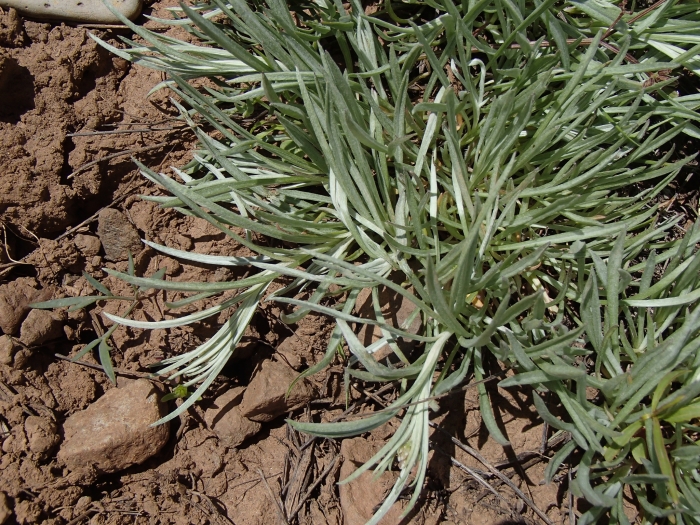Rush Pussytoes
(Antennaria luzuloides)
Rush Pussytoes (Antennaria luzuloides)
/
/

Tom Wainwright
CC BY 4.0
Image By:
Tom Wainwright
Recorded By:
Copyright:
CC BY 4.0
Copyright Notice:
Photo by: Tom Wainwright | License Type: CC BY 4.0 | License URL: http://creativecommons.org/licenses/by/4.0/ | Rights Holder: Tom Wainwright | Publisher: iNaturalist | Date Created: 2022-05-21T12:42:21-07:00 |

























Estimated Native Range
Summary
Antennaria luzuloides, commonly known as rush pussytoes, is a perennial herb that is native to subalpine meadows, open woodlands, and rocky slopes in western North America, including Alberta, British Columbia, and several U.S. states such as Montana, Idaho, and Washington. This plant typically grows up to 10 inches tall and features greenish-white or gray erect stems. Its leaves are woolly, lending a soft texture to the foliage. Rush pussytoes produce small, rounded flower heads in the spring, which are not particularly showy but add a subtle charm to the plant. The species is dioecious, meaning individual plants are either male or female, with male flowers being more conspicuous than female ones.
Rush pussytoes are valued for their low maintenance and ability to thrive in poor soils, making them suitable for rock gardens, native plant gardens, and restoration projects. They are drought-tolerant once established and prefer well-drained soils with full sun to partial shade exposure. While not commonly used in ornamental horticulture, they can serve as ground cover or be planted in borders for their foliage texture. There are no major diseases or pests associated with rush pussytoes, but they can be susceptible to root rot if overwatered. It’s important to note that while they are not aggressive, they can spread via rhizomes and form colonies, so space should be allowed for natural spreading.CC BY-SA 4.0
Rush pussytoes are valued for their low maintenance and ability to thrive in poor soils, making them suitable for rock gardens, native plant gardens, and restoration projects. They are drought-tolerant once established and prefer well-drained soils with full sun to partial shade exposure. While not commonly used in ornamental horticulture, they can serve as ground cover or be planted in borders for their foliage texture. There are no major diseases or pests associated with rush pussytoes, but they can be susceptible to root rot if overwatered. It’s important to note that while they are not aggressive, they can spread via rhizomes and form colonies, so space should be allowed for natural spreading.CC BY-SA 4.0
Plant Description
- Plant Type: Shrub, Herb
- Height: 0.3-1 feet
- Width: 0.3-1 feet
- Growth Rate: Slow
- Flower Color: White
- Flowering Season: Spring, Summer
- Leaf Retention: Deciduous
Growth Requirements
- Sun: Full Sun, Part Shade
- Water: Medium
- Drainage: Fast, Medium
Common Uses
Low Maintenance, Rock Garden
Natural Habitat
Subalpine meadows, open woodlands, and rocky slopes in western North America
Other Names
Common Names: Luzula-Like Pussytoes, Silvery Brown Pussytoes, Woodrush Pussytoes, Silvery Everlasting
Scientific Names: , Antennaria luzuloides, Antennaria luzuloides var. luzuloides,
GBIF Accepted Name: